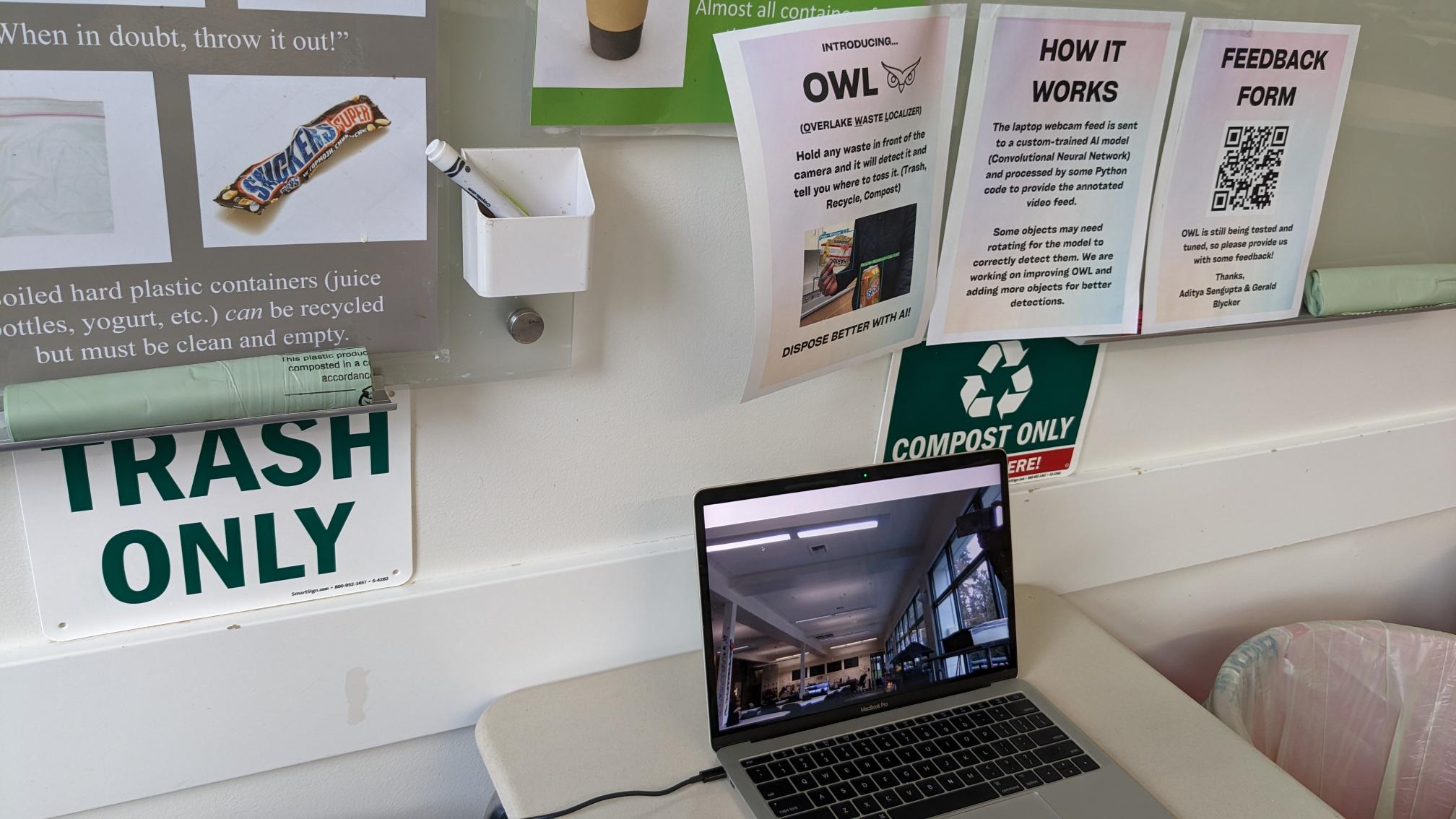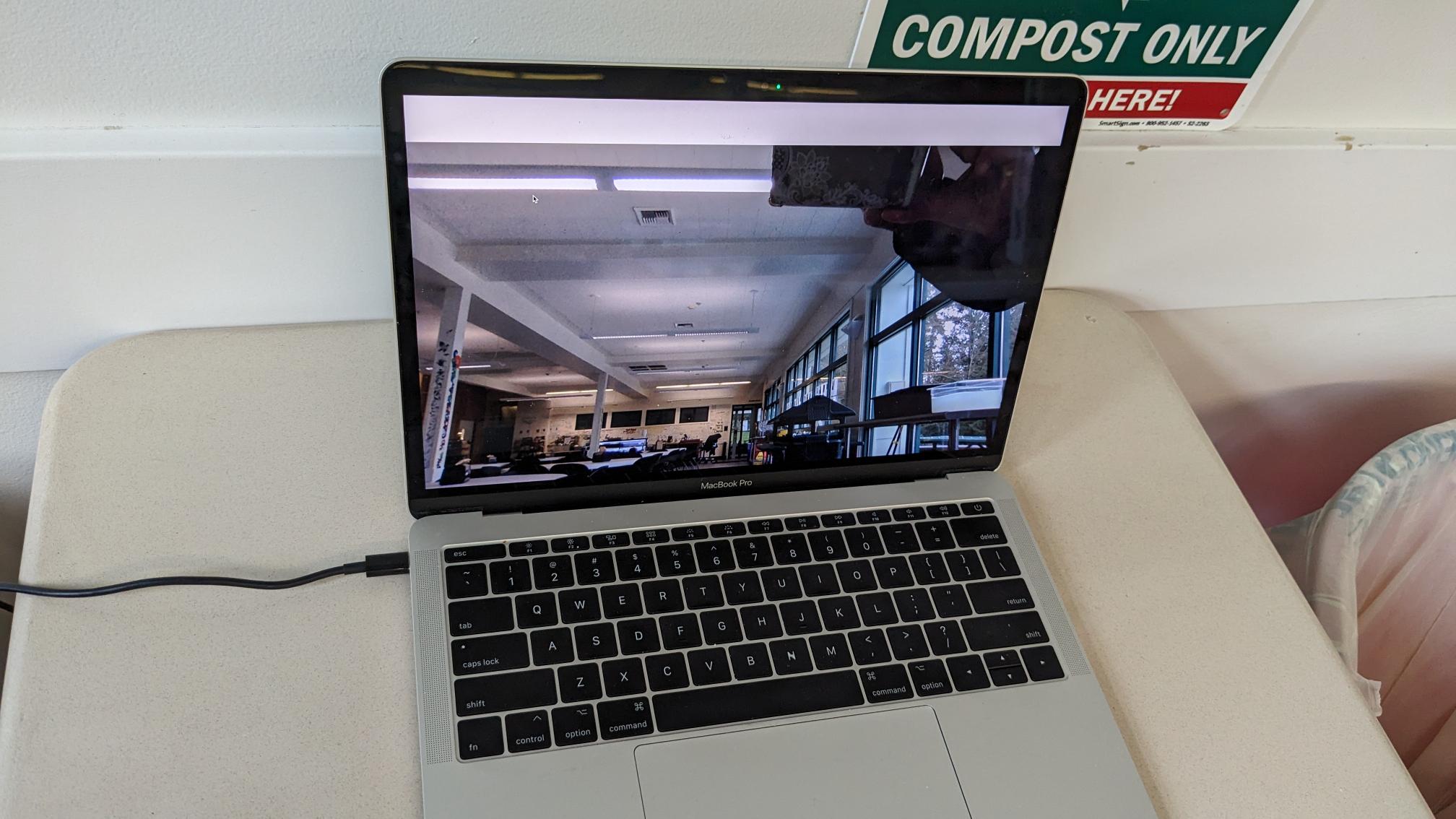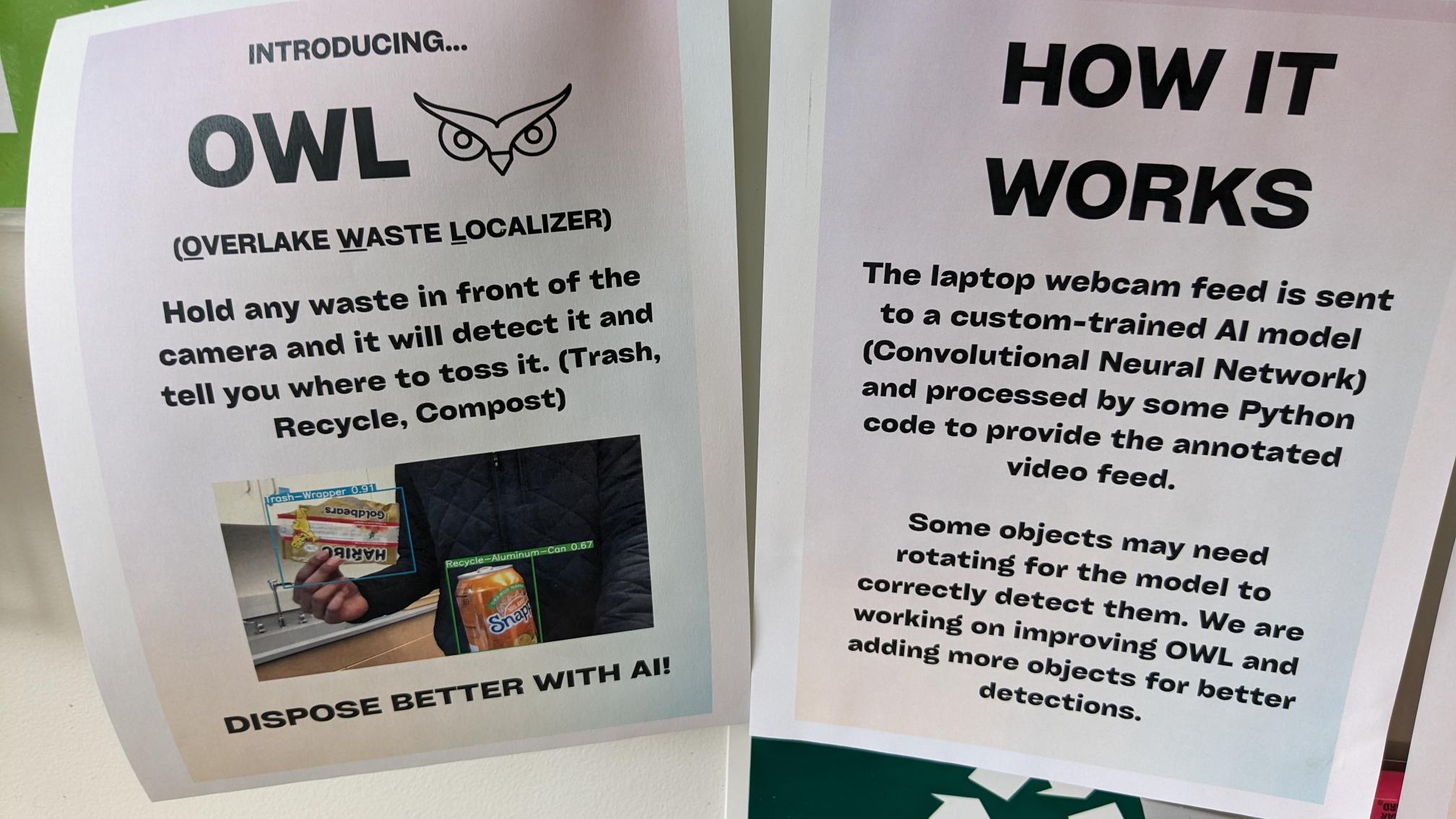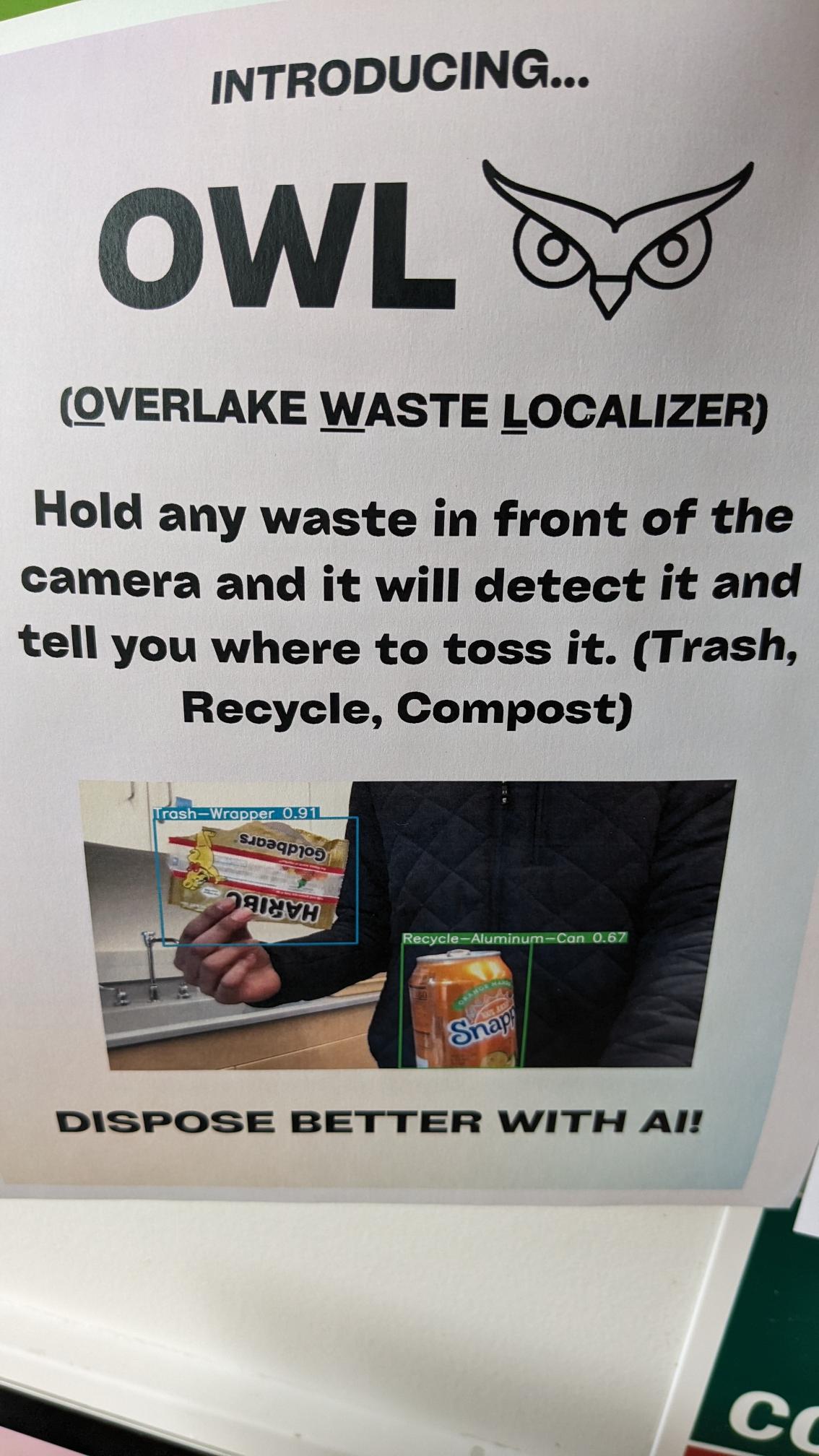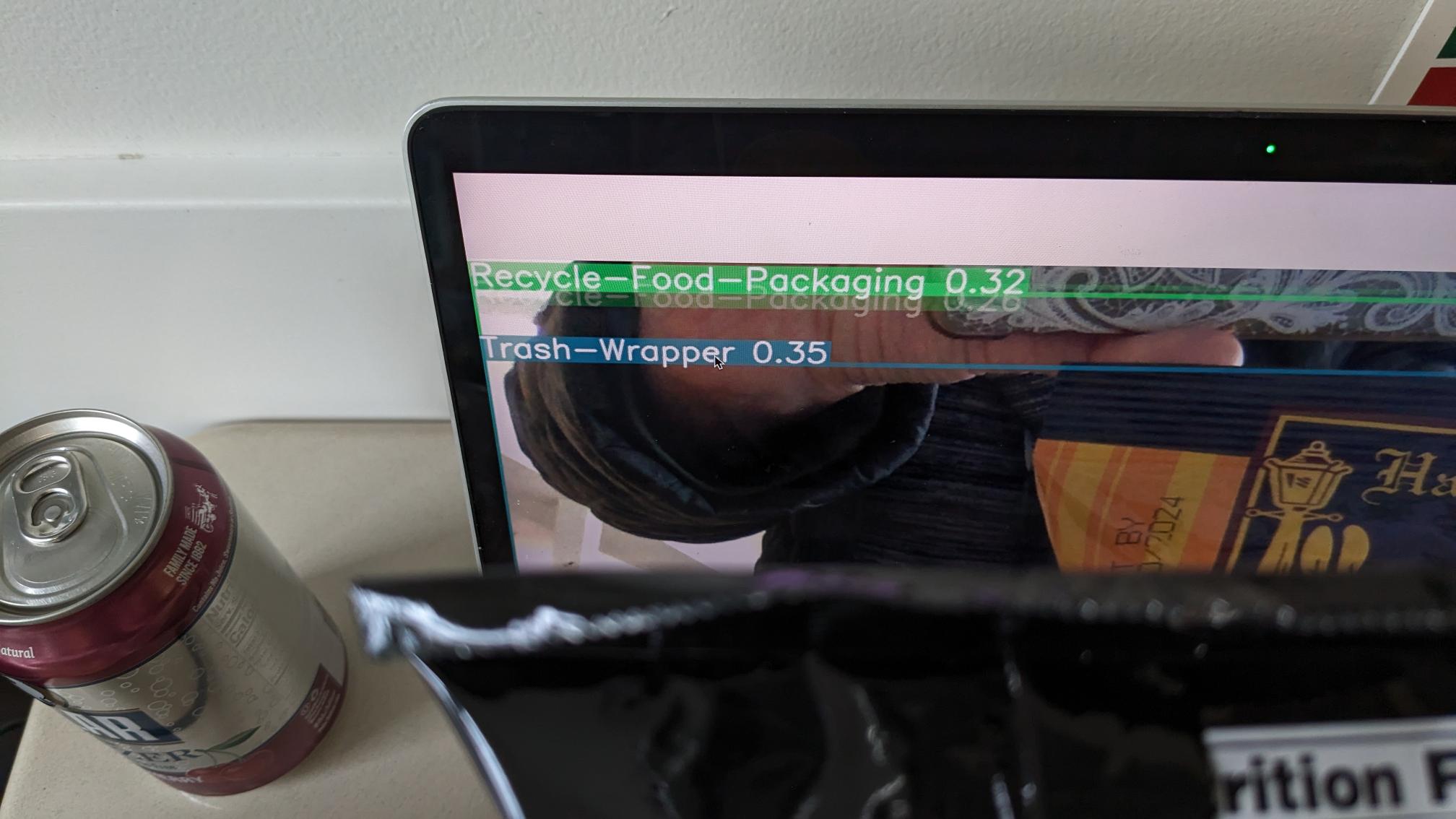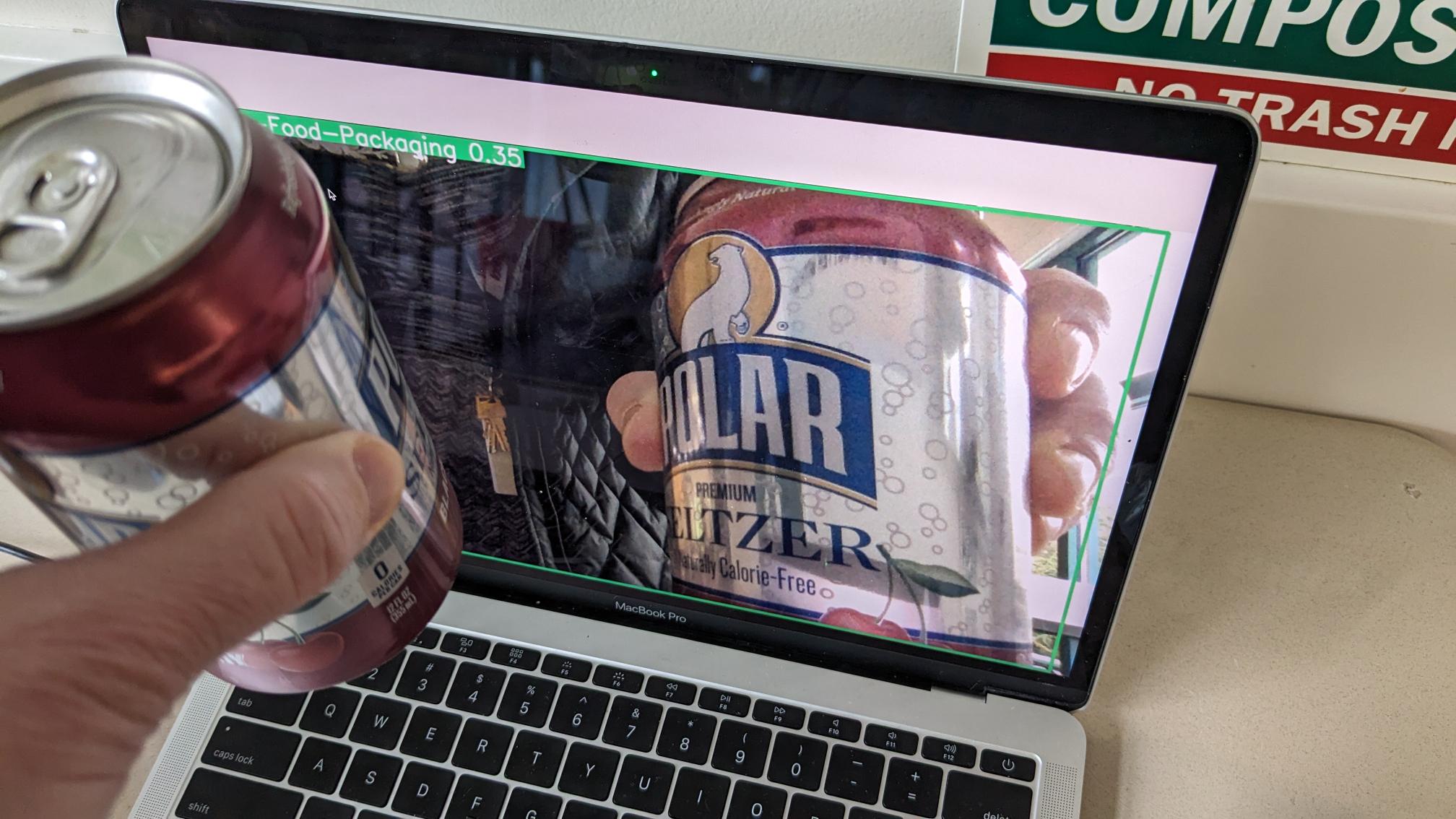- Information Literacy & Technology
How AI can help you at the trash bins

You might not expect a laptop to be hanging around a bunch of lunchroom trash bins, but that's exactly where the magic of AI and recycling happens at Overlake's Campus Center during lunch! Introducing Overlake Waste Localizer (OWL for short). It's the brainchild of 10th grader Aditya S. with the help of science teacher Gerald Blycker. "I came up with the idea for OWL after noticing the increasing confusion among students regarding waste disposal," explains Aditya. "This problem has existed for many years with people not knowing which bin to toss their waste in and a significant amount of it was being misplaced."
Aditya says throwing something into the wrong bin also leads to environmental concerns. "Putting trash or compost in the recycle bin contaminates the recycling stream, making it harder to process and often invalidating recycled materials."
So enter a digital solution. OWL is a custom-trained Convolutional Neural Network for waste detection and classification that runs (using Python code) on the webcam feed of a laptop situated near the waste bins. Aditya created OWL as part of an independent project started in his Linear Algebra class. "Gerald, my advisor, was able to help me find some sample waste objects which I used to train my model. I recorded videos of me holding and rotating the different objects in trash, recycle, and compost, and then I manually annotated the data with the bounding boxes to train the detection model."

